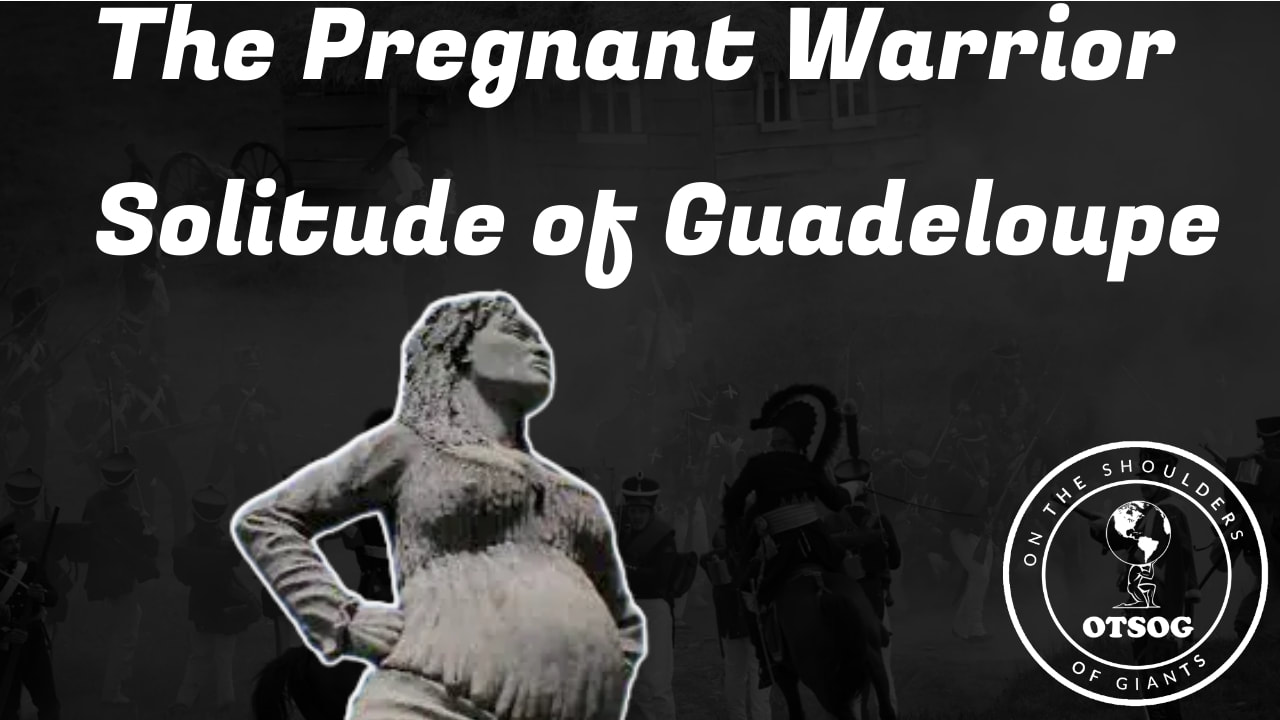|
“Live Free or Die.” Were the last words of a pregnant woman fighting for her freedom against the French on the island of Guadeloupe. Solitude was born in 1772, on the Island of Guadeloupe. Her mother was an enslaved African woman and her father was a French sailor who impregnated her mother by force. Solitude’s mother escaped enslavement but left Solitude on the plantation. Years passed, and Solitude grew into a very beautiful young lady. She was said to have beautiful brown skin and exquisite eyes, each was a different color. Men often fought each other for her affection. Solitude worked as a domestic slave cleaning and keeping her master's house tidy. It is believed that she was given domestic duties because of her beauty and skin complexion. She was called the Female Mulatto' because she was of mixed race. In 1794, the French Empire abolished slavery, because the Haitian Revolution was successful, and they wanted to avoid further revolutions throughout the colonies. Solitude and many other enslaved Africans left their plantations to live in Maroon colonies in Guadeloupe and live on other Caribbean Islands. The Africans living within the French colonies were free of French enslavement and able to live their lives as free men and women, so they thought. In 1799, Napoleon Bonaparte became the de facto leader of the French Republic, and in 1802 Napolean reinstated slavery with the passing of the Law of 20 May 1802, which revoked the abolition of slavery in 1794. Solitude and a large number of African people revolted against the reinstatement of slavery. Louis Delgrès was the leader of the revolt against Napoleon, and Solitude stood bravely by his side ready to defend her freedom. Solitude joined the fight even though she was pregnant. Before fighting the French, Delgrès released a message to his people; “To the whole universe, the last cry of innocence and despair”. The battles began in May of 1802. Pregnancy did not stop Solitude from excelling on the battlefield. She gained a reputation as a fierce fighter because she was able to help lead her troops deep into the French territory. She was a major contributor to many victories over the French troops. Later in May of 1802, French General Richepance attacked a fort where Delgrès and other Maroons were occupied. The Maroons and the French battled for over 18 days at the Fort. Finally, on the 18th day, the Fort was bombed, Solitude survived the bombing but was injured, she was also captured by the French and jailed. Delgrès and several others died in the bombing. Solitude was jailed until she gave birth to her baby; which became the property of the French because she was no longer a free woman. A day after giving birth, Solitude was executed for her role in the revolt. One thing I learned about Solitude, she did not allow anything to stop her from achieving her goals. Neither pregnancy, the threat of enslavement, nor death, could stop Solitude from fighting for her freedom and the freedom of her people. “Live free or die,” are the last words Solitude spoke before she was executed. To the brave and beautiful Solitude of Guadeloupe, we proudly stand on your shoulders. J. A. Ward Click here to purchase a book from the OTSOG book series. References: https://kentakepage.com/solitude-of-guadeloupe/ https://en.wikipedia.org/wiki/La_Mul%C3%A2tresse_Solitude https://africanlisbontour.com/2021/01/16/solitude-la-mulatresse-solitude/ https://goodblacknews.org/2018/08/09/history-meet-solitude-the-great-warrior-woman-of-guadeloupe-who-fought-against-french-troops-in-1802-while-pregnant/
0 Comments
Leave a Reply. |
Details
Categories
All
Click Here to join our mailing list
|
Contact Us: |
Connect With Us |
Site powered by PIT Web Design


 RSS Feed
RSS Feed



